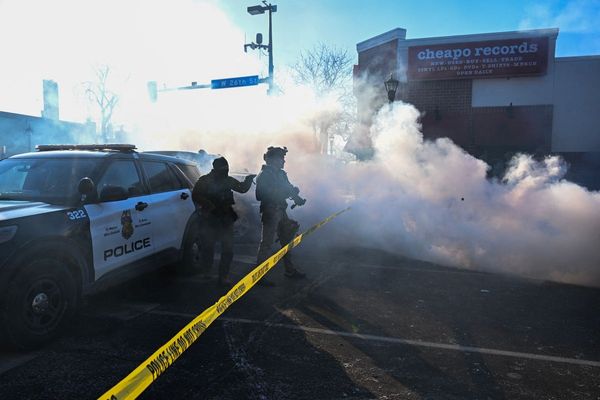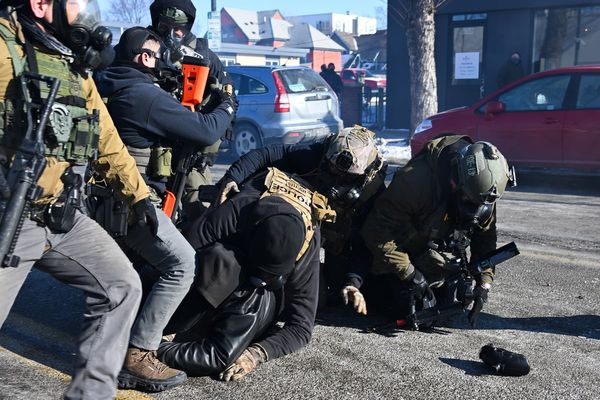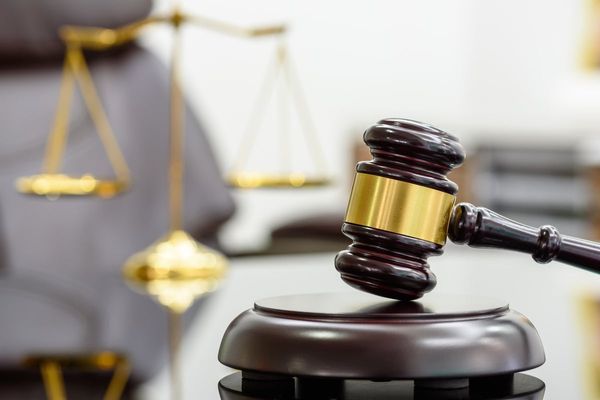Volodymyr Zelensky has warned Donald Trump and European leaders that Vladimir Putin is “bluffing” over his intentions to end the war in Ukraine, ahead of a crucial summit between the US and Russia on Friday.
The Ukrainian president reiterated that there can be no talk of territorial concessions without his country’s involvement, as both he and other world leaders are sidelined from the historic meeting in Anchorage, Alaska.
Following a virtual conference with Mr Zelensky, Mr Trump, German chancellor Friedrich Merz and French president Emmanuel Macron, Sir Keir Starmer said a “viable” chance of reaching a ceasefire in the Ukraine war now exists, but Britain stands ready to “increase pressure” on Moscow if necessary.
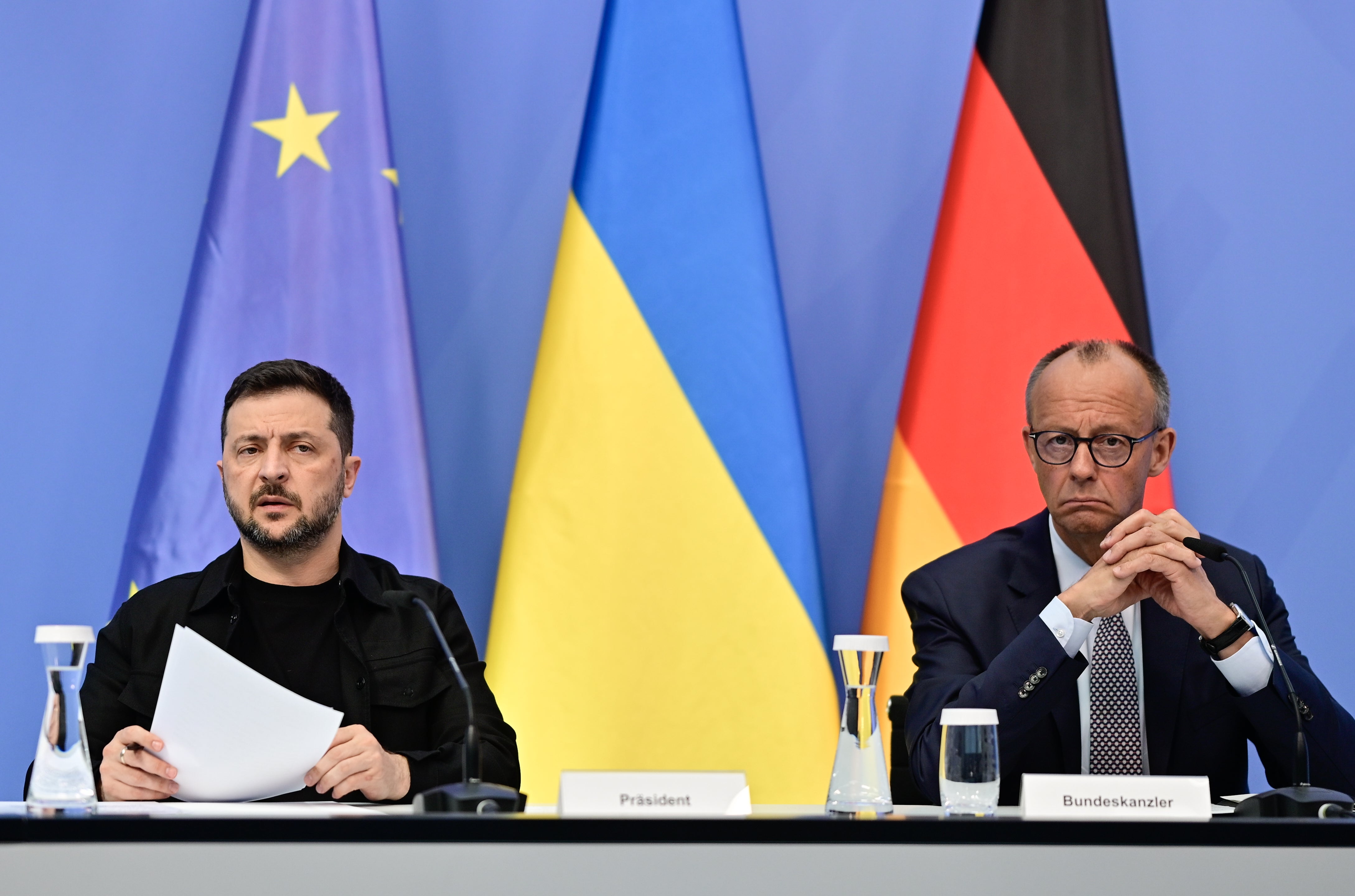
Trump has also threatened "severe consequences" if Putin does not agree to peace in Ukraine. While he has not specified what those consequences could be, he has warned of further economic sanctions if the meeting proves fruitless.
It comes as a report in The Times suggests Russia and the US have discussed the Israeli occupation of the West Bank as a potential model for a future settlement between Moscow and Kyiv.
The plan, which is understood to be supported by Mr Trump’s special envoy Steve Witkoff, would imitate Israel’s rule over Palestinian territory since 1967, with Russia seizing military and economic control of the disputed regions.
During Wednesday’s meeting, Mr Macron said that Mr Trump had been “very clear” in his objective to achieve a ceasefire, and had reiterated that “territorial issues relating to Ukraine will only be negotiated by the Ukrainian president”.
Mr Trump later said that if his meeting with the Russian leader goes well, he would like to have a quick second meeting with Putin and Mr Zelensky.
He rated the call as a 10, and denied that it was his decision to exclude Mr Zelensky from Friday’s talks.
"If the first [meeting] goes OK, we'll have a quick second one," Mr Trump told reporters. "I would like to do it almost immediately, and we'll have a quick second meeting between President Putin and President Zelensky and myself, if they'd like to have me there."
Meanwhile, Mr Zelensky told Mr Trump and European leaders that “Putin is bluffing – he is trying to push forward along the whole front”.
“Putin is also bluffing, saying he doesn’t care about the sanctions and that they’re not working,” he said. “In reality, the sanctions are very effective, and they’re hurting the Russian military economy. Putin doesn’t want peace – he wants to occupy our country”.
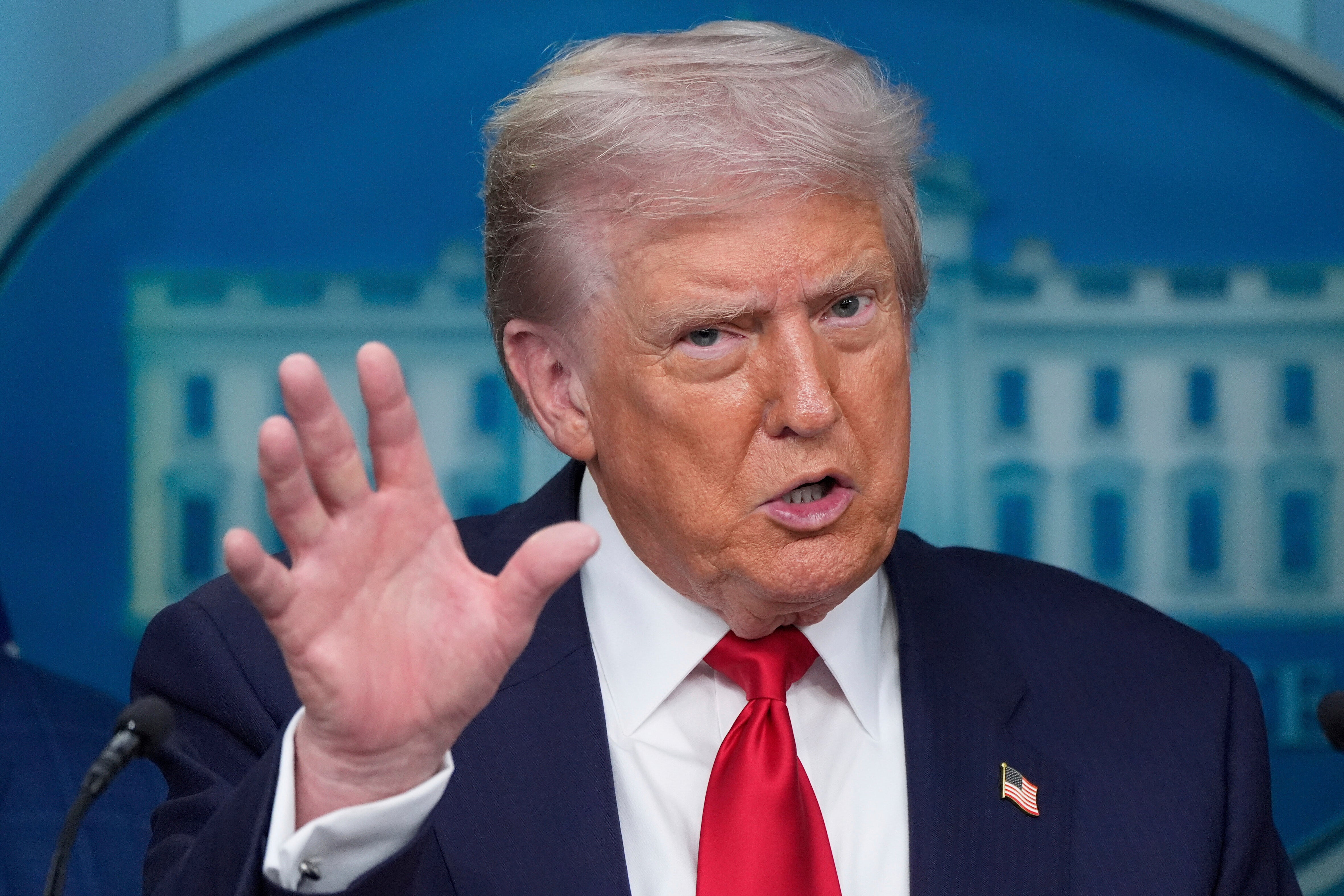
In recent days, Russian forces have been closing in on key territory around the city of Pokrovsk in the Donbas region, which could interrupt Ukrainian supply lines to the Donetsk region, where Putin has concentrated his military efforts.
On Tuesday, Mr Zelensky said that Putin has demanded Kyiv’s forces withdraw from Donetsk as part of any potential ceasefire deal, a notion which he strongly rejected.
Reiterating his stance that relinquishing the Donbas region would not be agreed by Ukraine, Mr Zelensky told reporters: “Any questions concerning our country’s territorial integrity cannot be discussed without regard for our people, for the will of our people, and the Ukrainian constitution”.
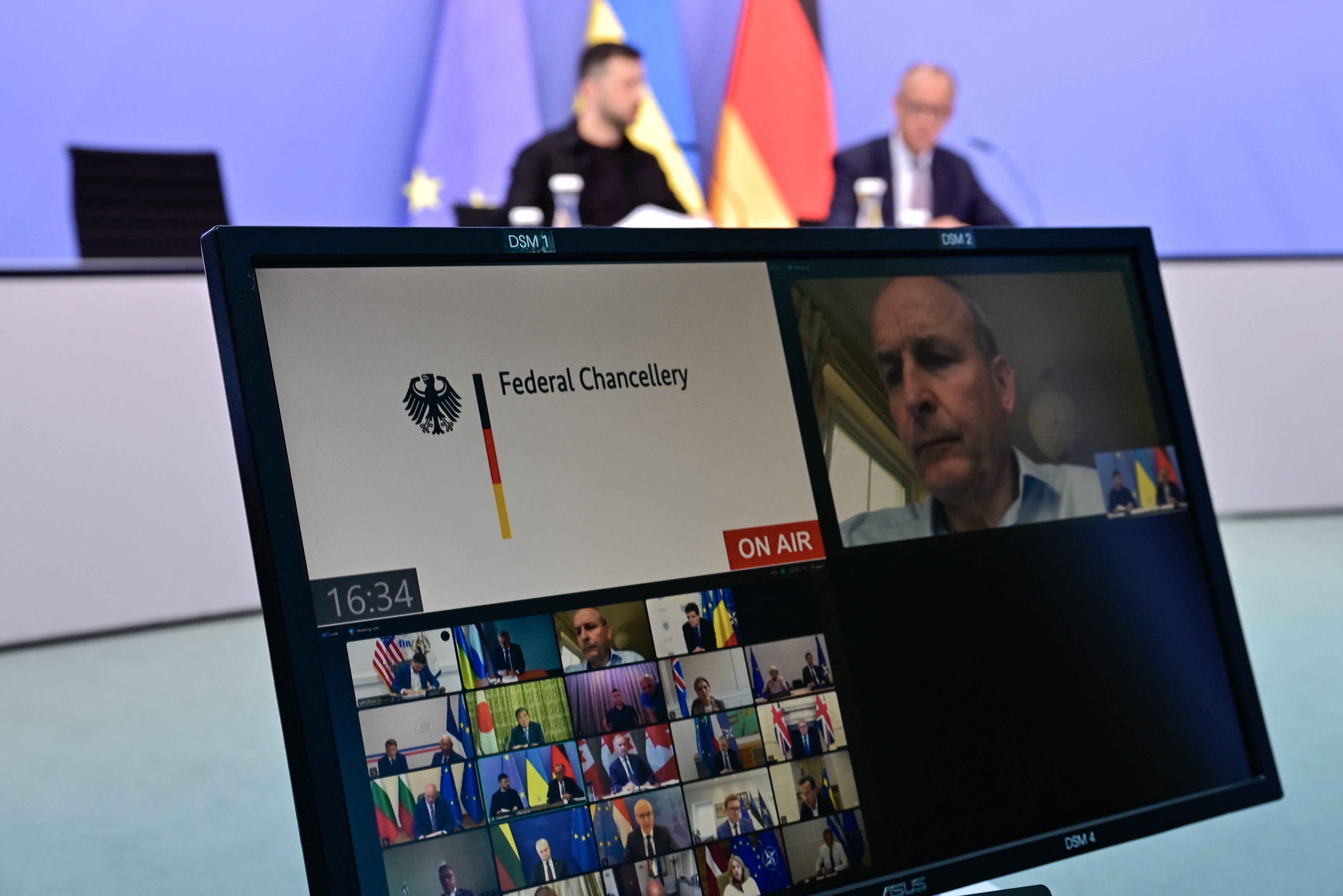
Mr Merz convened the virtual meetings in an attempt to make sure European leaders, and especially Mr Zelensky, are heard ahead of the Trump-Putin summit on Friday.
In a post to his Truth Social account ahead of the summit, Mr Trump said: “Will be speaking to European leaders in a short while. They are great people who want to see a deal done.”
Mr Merz said after the video conference that “important decisions” could be made in Anchorage, but stressed that “fundamental European and Ukrainian security interests must be protected” at the summit.
He added that European leaders made it clear to Mr Trump that Ukraine must be at the table for any future meetings, a ceasefire must come ahead of the start of the negotiations, and recognising Russian-occupied territory is not on the table.
Other objectives included ensuring Ukrainian forces can defend their country with the support of Europe, and that wider negotiations must be part of a “transatlantic strategy”.
Friday’s meeting has been described by the White House as a “feel-out summit”, with Mr Trump looking to see if Putin is serious about ending the war, and to better understand his intentions.
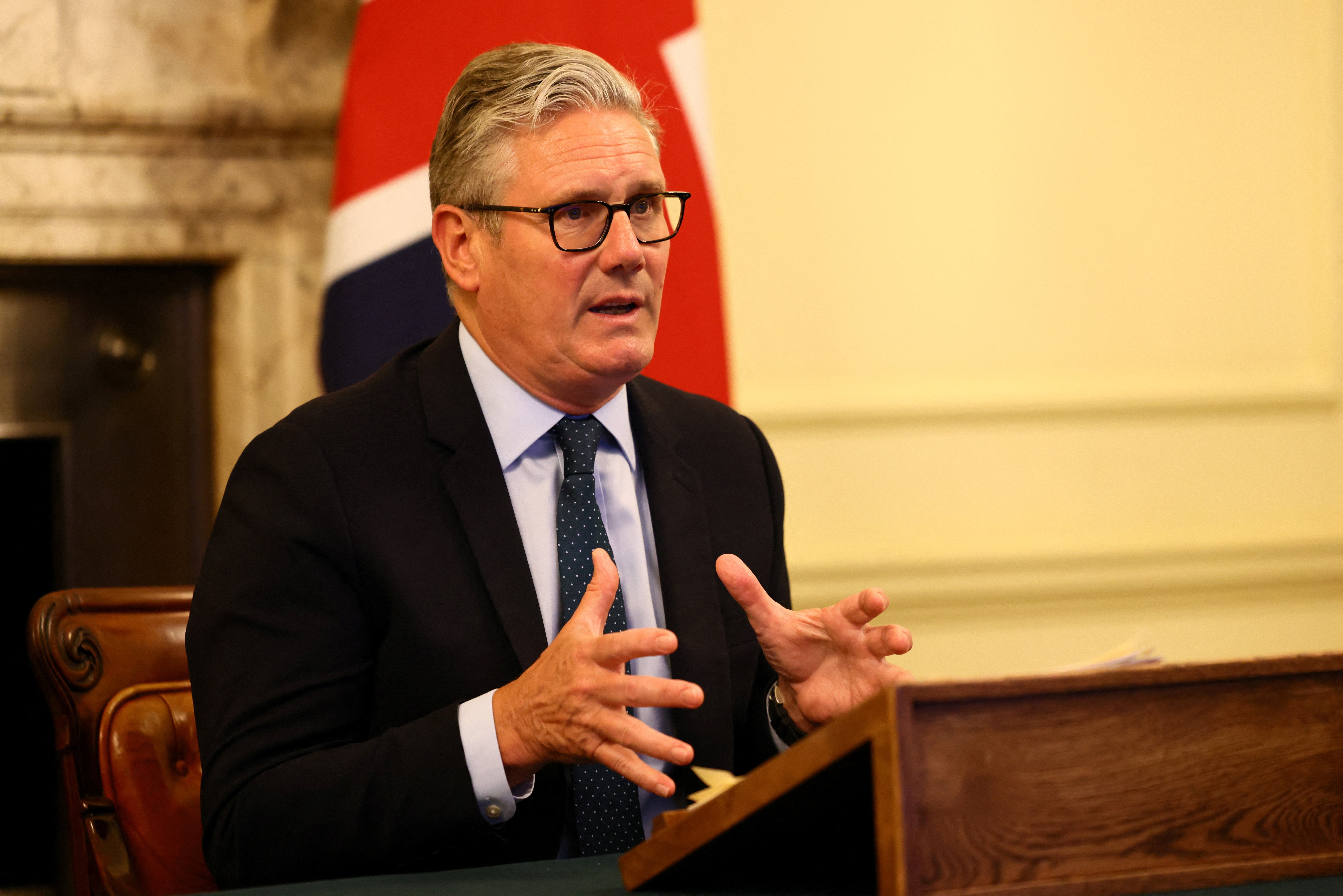
However, his comments that both Russia and Ukraine must concede territory have caused concern, with European leaders worried that any major concessions to Putin could cause security problems for the West.
A call among “coalition of the willing” leaders – those countries prepared to help police any future peace agreement between Moscow and Kyiv, including the UK – also took place on Wednesday.
Sir Keir said: “This is a critical moment. We have to combine active diplomacy on the one hand with military support to Ukraine and pressure on Russia.
“International borders ... must not be changed by force ... that’s a long-standing principle of this group.
“And alongside that, any talk about borders, diplomacy, ceasefire has to sit alongside a robust and credible security guarantee to ensure that any peace ... is lasting peace and Ukraine can defend its territorial integrity as part of any deal.”
